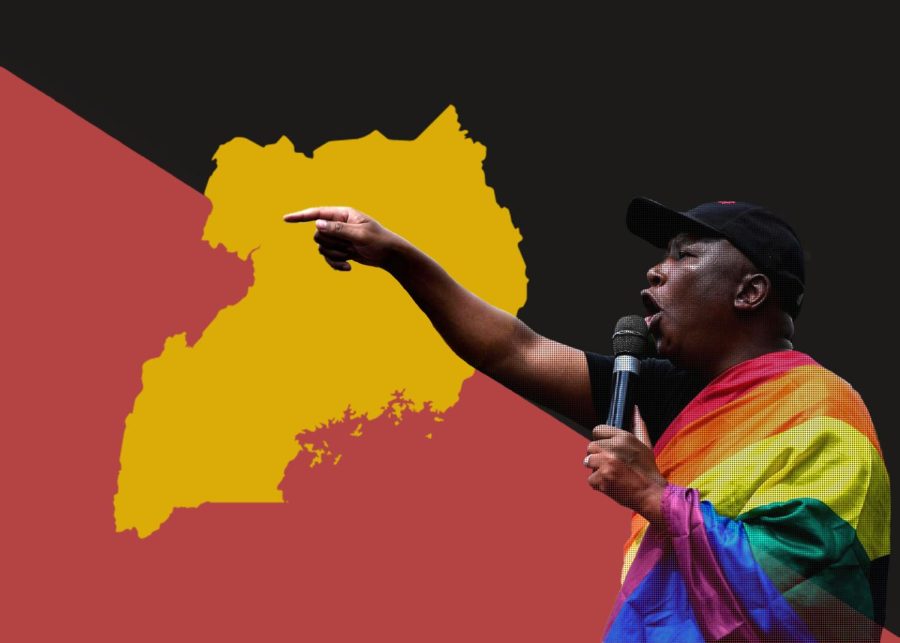A Death Sentence for Identity
Uganda’s extreme new anti-LGBTQ+ bill impacts international students in the US
May 3, 2023
The Ugandan parliament passed an anti-gay bill on March 21 that introduces the death penalty for “aggravated homosexuality,” a broad term that criminalizes same-sex acts with children, people with disabilities, serial offenders, or people who test positive for HIV. It also prohibits an individual from identifying as gay or queer and bans organizations from requesting donations to advocate for LGBTQ+ rights. The bill finds those organizations guilty of promoting homosexuality, which is punishable by up to 20 years in prison.
While Uganda is one of 30 African countries that has banned and criminalized same-sex acts, this new legislation takes consequences to a greater level. It could potentially set a precedent for other African countries to follow, which could be devastating for the global LGBTQ+ community. It was described as “one of the most extreme actions taken against the LGBTQ+ community in the world” by Karine Jean-Pierre, White House press secretary.
Although this bill was passed in Uganda, it has a direct effect on African international students at Fordham and other universities who identify as LGBTQ+ and who may have to return to their home country depending on the validity of their visa status and individual circumstances. As a result of this bill, students returning to their home countries could legally face persecution and discrimination for their sexual orientation or gender identity.
The enactment of this bill also raises critical questions about how universities can support and protect students who identify with the LGBTQ+ community, especially those from countries with anti-LGBTQ+ legislation. Following the enactment of the bill, it is important that a culture of inclusivity and acceptance is promoted at universities across the United States, including Fordham. Protecting students from countries with anti-LGBTQ+ legislation would require steps and resources that are specific in addressing the needs of LGBTQ+ students of color.
At Fordham, Counseling and Psychological Services provides both general counseling services and specific health and wellness resources for students of color. In addition, the university offers a weekly “LGBTQIA+ Support Space,” but in this context, the resource could be improved if it was tailored for students from countries with anti-LGBTQ+ legislation.
While Fordham does offer support for international students as they navigate the visa application process, students have expressed frustration with the quality of services provided. In addition to improving those services, Fordham should advocate for international students’ rights and safety by working with other universities and organizations to raise awareness about the challenges LGBTQ+ students face in countries with anti-LGBTQ+ legislation.
It is important that action is taken to support and protect these students. By providing resources and safe spaces, offering legal and immigration support, and collaborating with LGBTQ+ organizations and activists, universities can create a culture of inclusivity and acceptance that extends beyond their campus borders — providing a lifeline for students who may feel isolated and alone. Only through a collaborative effort can we ensure that all students, regardless of their sexual orientation or gender identity, are safe and uplifted in their pursuit of education and personal growth.














